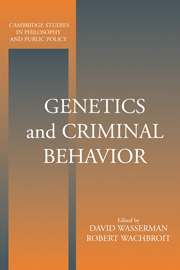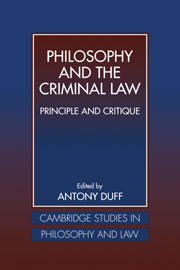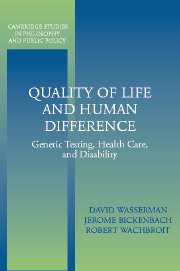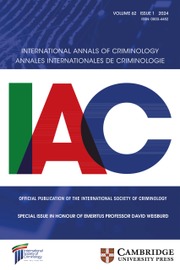Genetics and Criminal Behavior
This volume brings together a group of essays by leading philosophers of science, ethicists, and legal scholars, commissioned for an important and controversial conference on genetics and crime. The essays address basic conceptual, methodological, and ethical issues raised by genetic research on criminal behavior but largely ignored in the public debate. They explore the complexities in tracing any genetic influence on criminal, violent, or antisocial behavior, the varieties of interpretation to which evidence of such influences is subject, and the relevance of such influences to the moral and legal appraisal of criminal conduct. The volume provides a critical overview of the assumptions, methods, and findings of recent behavioral genetics.
- High-profile contributors
- Controversial topic of long-term concern
- Broad, interdisciplinary appeal
Reviews & endorsements
'… the book is a good introduction to the state of play in this area of study ≥'. Practical Philosophy
Product details
January 2001Paperback
9780521627283
348 pages
229 × 152 × 20 mm
0.51kg
7 b/w illus. 12 tables
Available
Table of Contents
- Introduction
- Part I:
- 1. Understanding the genetics of violence controversy Robert Wachbroit
- 2. Separating nature and nurture Elliott Sober
- 3. Genetic explanations of behavior Kenneth Schaffner
- 4. On the explanatory limits of behavioral genetics Kenneth Taylor
- 5. Degeneracy, criminal behavior and looping Ian Hacking
- 6. Genetic plans, genetic differences, and violence: some chief possibilities Allen Gibbard
- Part II:
- 7. Crime, genes, and responsibility Marcia Baron
- 8. Genes, statistics, and desert Peter Van Inwagen
- 9. Genes, electrotransmitters, and free will Patricia Greenspan
- 10. Moral responsibility without free will Michael Slote
- 11. Strong genetic influence and the new 'optimism' Jorge Garcia
- 12. Genetic predispositions to violent and antisocial behavior: responsibility, character, and identity David Wasserman.







